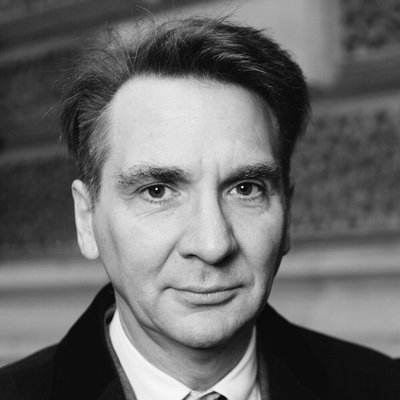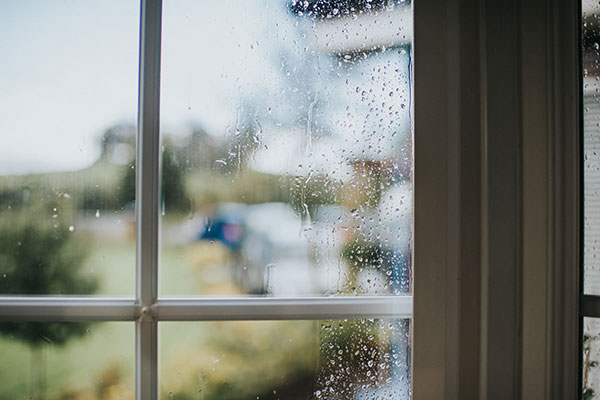As the Covid-19 crisis impacts on our mental health and wellbeing, Duncan Bartlett, FRSA shares how a renowned expert on relationships urged calm during a previous health emergency.
In an effort to reduce my anxiety during lockdown, I have turned to a book upon my shelf entitled How to Stop Worrying and Start Living by Dale Carnegie, published in 1953. The author is more famous for his hugely successful work How to Win Friends and Influence People, one of the first ‘self help’ books, which is still used as the basis for courses run in his name, more than six decades since his death.
Carnegie writes in a relaxed and conversational style, mixing anecdotes with snippets of research. His book on worry includes a striking passage about the smallpox epidemic in the US in the early 1920s.
“I remember a neighbour rang my doorbell and urged me and my family to be vaccinated against smallpox. He was one of thousands of volunteers who were ringing doorbells all over New York City. Frightened people stood in lines for hours at a time to be vaccinated. Vaccination centres were opened not only in all hospitals but also in firehouses, police precincts, and in large industrial plants. More than two thousand doctors and nurses worked feverishly hard day and night, vaccinating crowds. The cause of all this excitement? Eight people in New York City had smallpox and two died. Two deaths out of a population of almost eight million.”
Carnegie goes on to imply that “the emotional sickness of worry” was a greater scourge on society than the epidemic itself. This suggests that he did not fully grasp the success of the vaccination programme. In the 1920s, more than 100,000 cases of smallpox were recorded across the US. The widespread use of preventive vaccines was crucial in tackling the disease. Smallpox is now almost entirely wiped out, not just in America, but across the developed world. Could the scenes of people working feverishly hard day and night, vaccinating crowds, be repeated in 2021 as they were in 1921?
Carnegie categorises “worry, fear, heat, frustration and despair” as symptoms of anxiety that can be overcome through mental effort. Such an idea feels simplistic to the modern reader. Nowadays, a broad range of medicines and therapeutic tools are offered to those who struggle with their moods or with relationships. Many psychologists specialise in treating anxiety disorders, basing their approach on careful studies of the impact of trauma and the causes of clinical depression.
But we are faced with a question. Has this more scientific approach eased our worries over the decades? Writing in the 1950s, Carnegie claimed that one in 10 Americans had nervous breakdowns, often caused by worry or emotional conflict. Given that a “nervous breakdown” is not an event that is recognised by medical science, it is difficult to fact-check that particular claim. Yet the National Institute of Mental Health estimates that in 2017, there were 46 million people with some form of mental illness. This represents close to one in five of all adults in America.
Carnegie also said that more people commit suicide each year than die from communicable diseases. Suicide rates in the US have not declined since the 1950s. According to the National Center for Health Statistics, in 2018, there were 48,344 recorded suicides in the US. Carnegie’s assertion that more people die by their own hand than perish through communicable disease would have held true until very recently.
Covid-19 is changing that. It has already claimed more than fifty thousand lives in the US and the respected Institute for Health Metrics and Evaluation projects a cumulative total of around 134,475 COVID-19 deaths could occur by the end of August.
I suspect that if Carnegie were alive today, he would probably push back against the lockdowns and enforced social isolation. He might even join protesters in some American cities, decrying their loss of personal freedom.
One maverick columnist who rails against the restrictions in the UK is Peter Hitchens, who made a blistering attack on the British government’s handling of the Covid-19 situation in an opinion piecein the Mail on Sunday. His theme was fear.
Hitchens wrote that “the coronavirus is not as dangerous as claimed. Other comparable epidemics have taken place with far less fuss, and we have survived them.” He expressed anger at the British Prime Minister, Boris Johnson: “He did not just panic himself. He spread fear far and wide. More than half the population have been literally scared silly. You meet them on pathways and pavements, flinching with real alarm at the approach of another human being as if bubonic plague were abroad. They genuinely fear to go back to normal life.”
Hitchens’ rant did not include any practical advice on how to dial down the fear, while Carnegie’s view was that taking a positive mental attitude is crucial. Personally, I find comfort in one of his principles: trying to live in day tight compartments: “Don’t stew about the future. Just live each day until bedtime.”
But this involves effort and is much easier for some than others; trying not to speculate about a future which is far from clear, nor dwelling on the mistakes of the past, whether one’s own, or those of others. We are urged to purge our minds of resements. Instead, we should consider the present and ask ourselves what actions we can take today to manage our affairs as best we can. This could now be described as a ‘mindful’ approach, but the idea is, of course, a very ancient one. As Carnegie notes, this principle was advocated by many sages of old and the priests of most religions.
How to stop worrying and start living presents a challenge for every generation and so I am glad to have this folksy old book as a bedside companion during lockdown. It is not a textbook on psychiatry but it is encouraging me to take gentle steps towards a more positive perspective.
Duncan Bartlett, FRSA is a freelance journalist and editor, specialising in Asia. He is a graduate of the Dale Carnegie Institution course in Business Communication.
Related articles
-
Melancholy and the pandemic
Clem Henricson FRSA
Clem Henricson FRSA reflects on recent as well as historical examples of commemoration


Be the first to write a comment
Comments
Please login to post a comment or reply
Don't have an account? Click here to register.